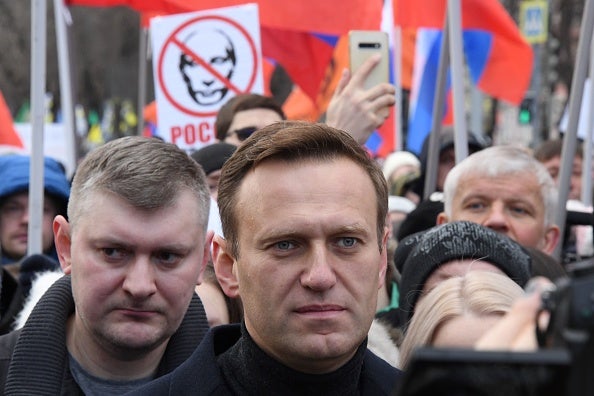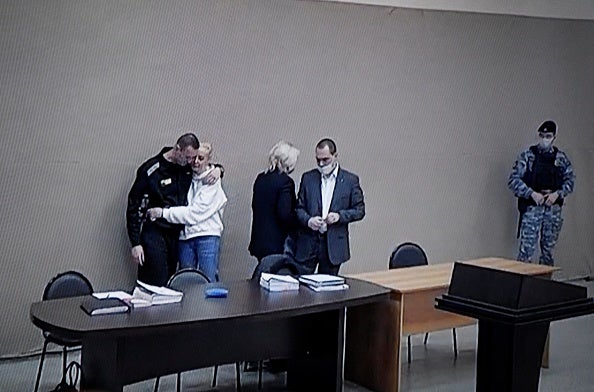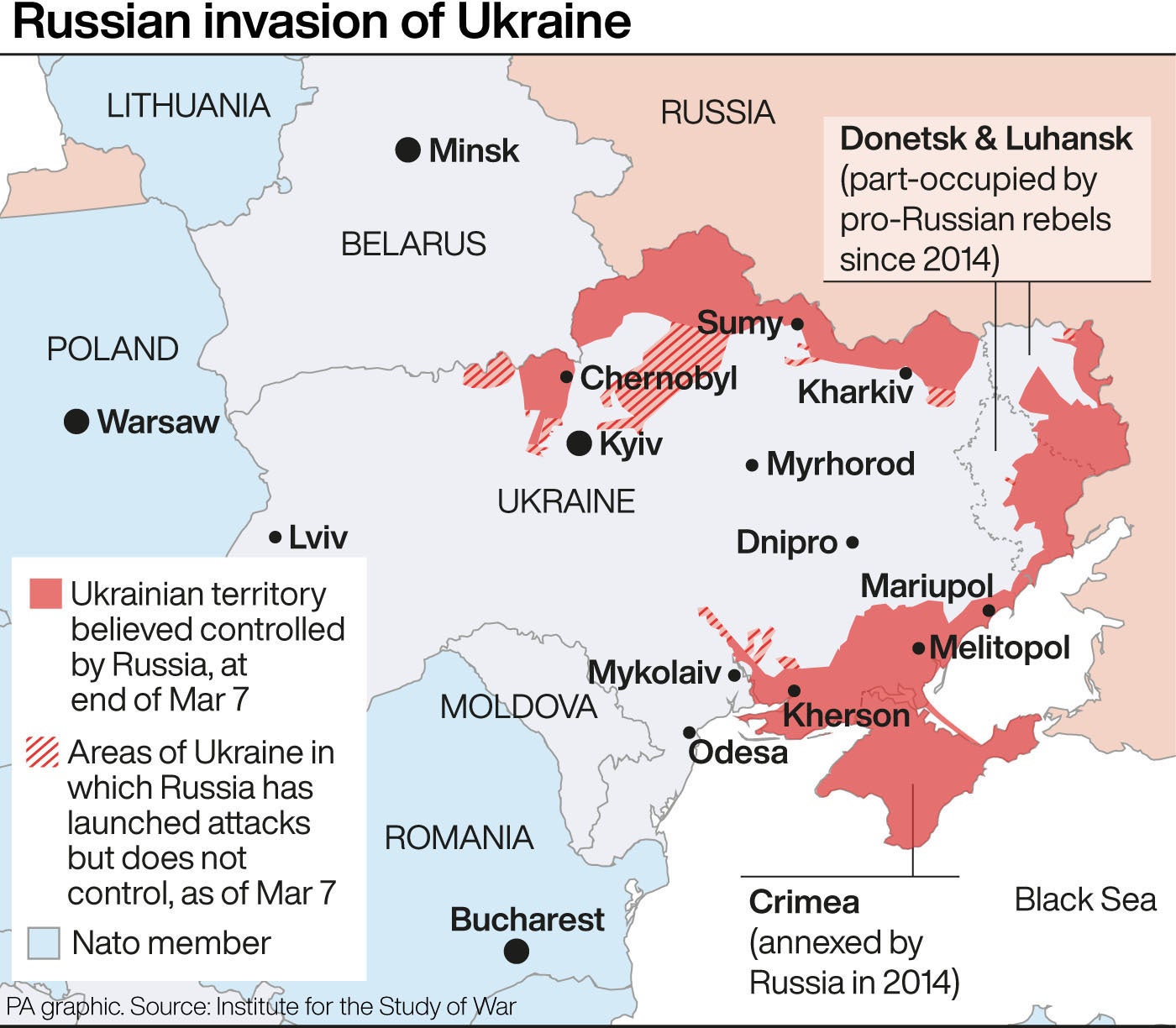
Anti-war feeling is growing in Russia with people in the country “rapidly beginning to realise who is responsible for initiating the conflict”, opposition leader Alexey Navalny has claimed.
A series of snap polls carried out by the Anti-Corruption Foundation, an organisation founded by Mr Navalny, found that there have been “rapid shifts in the evaluation of the war” among Russian people.
The organisation decided to run four short online polls, each with 700 participants from Moscow, and all of whom were internet users.
According to a post by Mr Navalny on his Twitter account, quota sampling by gender and age took place.
The quick polls seemed to show that between 25 February and 3 March there had been a marked change in opinion about Russia’s role in the conflict in Ukraine.
Alexey Navalny wrote: “The share of respondents who view Russia as the aggressor doubled, while the share of those considering Russia a ‘peace-maker’ halved”.
He added: “Although many of the participants still tend to blame ‘the West’ for initiating the war, the number of respondents who consider Ukraine guilty went down by half. Meanwhile, the share of those accusing Russia increased from 14 percent to 36 percent, i.e. by 2.5 times.”
By 3 March, 60 per cent of the 700 people surveyed assessed the economic situation in Russia as “catastrophic, collapse of economy, economic isolation”, according to Mr Navalny.

This was an apparent increase of 20 percent compared to only days before, on 25 February.
An overwhelming majority of people reportedly said that Russia and Ukraine should immediately cease all military operations and engage in peace talks.
79 per cent of those surveyed were in favour of negotiations, Mr Navalny claimed.
The activist and politician, who is currently in jail, added: “As noted above, this is not a nationwide poll. We don’t know the relation between these figures and the general population.
“However, running four survey waves in a short timeframe while adhering to the same method gave us an opportunity to observe the dynamics of public opinion.
“Throughout the history of ACF’s polling department, we have never observed such dynamics of public opinion shifts. It took a few days of war to bring about radical mood changes among Russians.”

Arch-Putin critic Mr Navalny is currently serving a three-and-a-half year sentence in a Russian prison for embezzlement and could have his imprisonment extended by up to 15 years due to further charges.
Mr Navalny has denied the charges and calls them politically motivated.
Before he was arrested and put in prison, Mr Navalny survived a poisoning attempt in 2020. He is a vocal critic of Putin’s regime and has accused the Russian leader of owning a £1billion mansion.
In a film released last year, Mr Nalvany investigated a Black Sea residence at Cape Idokopas, commonly known as “Putin’s Palace”, which he claims was constructed for the president.
Writing on social media on Monday, he said that the Russian people were “rapidly beginning to realise who is responsible for initiating the conflict, as well as the war’s true objectives and possible outcomes.”
He added: “Undoubtedly, the Kremlin can see these dynamics as well, hence the nervousness, the desperate attempts to end the war campaign as soon as possible.
“The anti-war momentum will keep growing across the society, so the anti-war protests should not be halted under any circumstances.”
Independent monitoring organisation OVD-info has said that Russian authorities have made 13,577 detentions at anti-war protests since 24 February.

On Sunday, around 3,500 people were detained at protests dotted around the country, Russia’s interior ministry said.
“The screws are being fully tightened - essentially we are witnessing military censorship,” Maria Kuznetsova, OVD-info spokesperson said.
“We are seeing rather big protests today, even in Siberian cities where we only rarely saw such numbers of arrests.”
Independent reporting has becoming increasingly difficult within the country, and the government has passed a law that punishes the intentional spreading of “fake” or “false” news about the war in Ukraine with up to 15 years in prison.
The Independent has a proud history of campaigning for the rights of the most vulnerable, and we first ran our Refugees Welcome campaign during the war in Syria in 2015. Now, as we renew our campaign and launch this petition in the wake of the unfolding Ukrainian crisis, we are calling on the government to go further and faster to ensure help is delivered. To find out more about our Refugees Welcome campaign, click here. To sign the petition click here. If you would like to donate then please click here for our GoFundMe page







